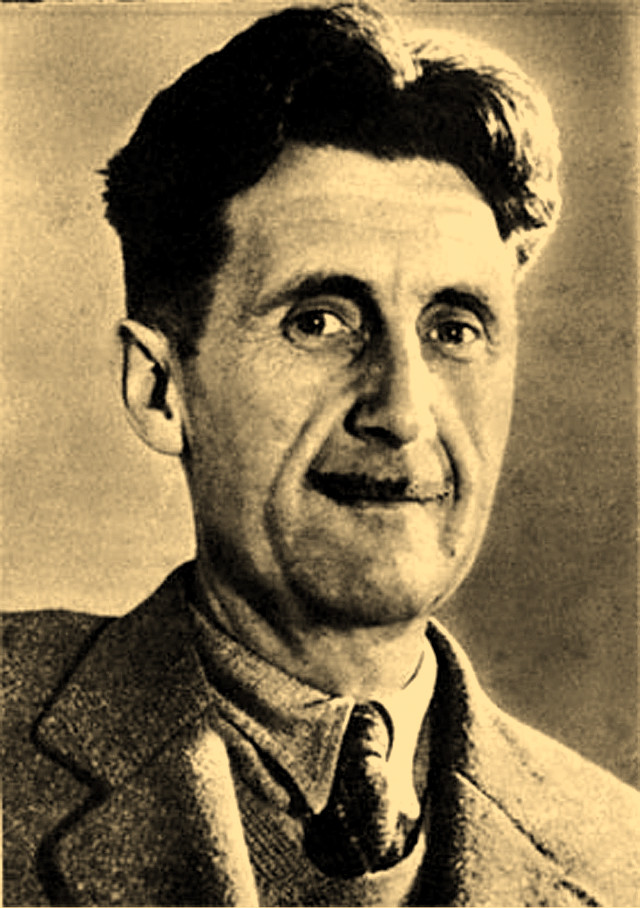A Hanging-Punishment for everyone
A Hanging is a short story about the execution of a prisoner by hanging. The author, George Orwell was inspired by as an imperial police in Burma to write this novel. Orwell uses a variety of literary elements and devices to convey his disproval of capital punishment. He creates a gloomy atmosphere, in the first person point of view, and builds up irony about the jailer’s attitude toward the prisoner’s death, to depict that everyone is involved into the hanging process, thereby revealing how capital punishment is unjustifiable.
The dark atmosphere of a jail and the narrator’s point of view show that capital punishment is not only the prisoner’s burden, but everyone’s burden. The story is written in the first person point of view, since “I” am the main character of the essay. Also, the narrator himself writes, “We were waiting outside the condemned cells” and “The superintendent of the jail, who was standing apart from the rest of us”, thereby giving readers information that the narrator is a imperial police. Thus, A Hanging is a story of an imperial police watching as prisoners are executed around him. It is assumed that an imperial police will agree with the use of capital punishment, since he is not the one being punished. However, the atmosphere of the story is dark and murky at all times. The narrator describes, “A sodden morning of the rains”, “a sickly light, like yellow tinfoil”, “condemned cells, a row of sheds fronted with double bars, like small animal cages”, “desolately thin in the wet air”. These phrases all create the gloomy atmosphere of the jail. The dark mood proves that the narrator is concerned and nervous about the hanging to come, since the atmosphere is described by the imperial police himself. If the narrator was unaffected by the execution, then the tone of the story would not have been so gloomy. By creating a dim atmosphere from the narrator’s point of view, Orwell verifies that people cannot simply neglect the capital punishment. All people feel anxiety about it, as we know it is a cruel and inhumane form of punishment.
The author also builds up irony about the warder’s emotions before and after the hanging, introducing countless other characters beyond the prisoner and the narrator, who is disturbed about the idea of capital punishment. When a rope is fixed to the prisoner’s neck, he starts to cry out, “Ram! Ram! Ram! Ram!” His voice is not urgent or fearful, but steady and rhythmical, as if the prisoner has accepted the fate he faces; he is ready to be hanged. But then, the narrator states: “Everyone had changed color … the same thought was in all our minds: oh, kill him quickly, get it over, stop that abominable noise!” This quote describes the jailers’ state of mind; anxious, aghast, and fearful. The general perception is that the prisoner about to die is afraid, and it won’t affect the warders at all. However, Orwell shows the opposite. The prisoner, who should be scared of his encroaching death, calmly receives his fate, while the jailers, who should calmly punish the prisoner, are losing their temper. It is jailers, who are tormented by the hanging. The jailers didn’t have personal relationship or acquaintances with the prisoners, but they are simply troubled of “destroying a healthy, conscious man”. This is more clearly shown by the warders’ attitudes after the hanging. The narrator states, “It seemed quite a homely, jolly scene, after the hanging. An enormous relief had come upon us now that the job was done … I found that I was laughing quite loudly. Everyone was laughing. Even the superintendent grinned in a tolerant way.” When a person dies, mourning his death is a typical reaction. However, jailers’ demeanor has become awkwardly cheerful and relieved. This is because a relief for escaping the terrible scene of execution was bigger than a despair of a person’s death. To the warders capital punishment is not just about a person dying, but it is torture and agony to watch the murder of a normal life. These contrasting views between people’s general concept and the actual attitude of jailers show how horribly capital punishment influences all people in the jail.
By creating a depressed tone in the first person point of view and the irony of warders’ feelings toward the hanging, Orwell portrays the misery and pain that is delivered to every person who experiences, or merely watches capital punishment. The gloomy atmosphere tells us that the narrator, who is just a bystander of a hanging, also senses gloominess around the jail yard. The irony of warders’ attitudes toward a prisoner’s death shows that everybody involved in capital punishment endures a burden. As it negatively influences many people other than the prisoner, Orwell defines capital punishment as unjustifiable and vicious punishment.
<References>
Orwell, George “A Hanging” George Orwell Web Ring , 30 Aug. 2013. Web. 23 May 2014 (http://orwell.ru/library/articles/hanging/english/e_hanging)
“George Orwell.” Bio. A&E Television Networks, 2014. Web. 23 May 2014. (http://www.biography.com/people/george-orwell-9429833#personal-life&awesm=~oF3aweFw23GuG4)
